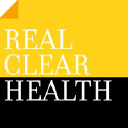Stories
April 25, 2024 by tobaccoreporter.com

U.K. Misleading Public About Relative Risk: Gilchrist
Philip Morris International criticizes the U.K. Department of Health for allegedly spreading misinformation about heated-tobacco products. The department's social media post stating all tobacco as harmful is seen as misleading and potentially driving consumers back to cigarettes. PMI argues that the government's false statements hinder smokers from switching to alternatives. They claim heated-tobacco products are not proven to help quit smoking. PMI emphasizes the need for accurate information and criticizes the government for distortion.
April 25, 2024 by realclearhealth.com

Tobacco Harm Reduction Saves Smokers’ Lives
FDA Commissioner Califf spoke at a hearing, incorrectly labeling tobacco harm reduction as an industry term. Dr. Rodu challenges this, advocating for harm reduction to save the 480,000 American lives lost yearly due to cigarettes. He argues for safer nicotine alternatives, stressing the need for realistic public health policies over prohibition. Rodu emphasizes the parallels between nicotine and caffeine, calling for a shift towards evidence-based strategies to combat smoking-related illnesses. The narrative around nicotine's risks is critiqued, highlighting the potential benefits of harm reduction. Ultimately, the focus should be on saving lives by providing adult smokers with choices to quit and lead healthier lives.
18.30% of the adult population are current smokers. There are approximately 48.7 million current smokers in United States 21.60% of men are current smokers but only 15.20% of women.
SOURCE: GSTHR
April 25, 2024 by reason.org

Fentanyl in e-cigarettes: The making of a myth
The recent House hearing addressed concerns about foreign disposable e-cigarettes possibly containing fentanyl. Such fears, however, are baseless for nicotine e-cigarettes, with no evidence of fentanyl contamination. Reports of fentanyl in vapes typically involve illicit cartridges for opioids or cannabis, not legal e-cigarettes. Linking e-cigarettes to illicit drug issues only hinders harm reduction efforts. While youth vaping has decreased, public misconceptions persist. Heavy restrictions have removed most U.S. e-cigarette products, leading to an influx of Chinese disposable e-cigarettes. Sensationalism around fentanyl in e-cigarettes diverts from evidence-based public health policies.
April 25, 2024 by irishmirror.ie

Calls for Government to raise minimum age for buying tobacco products from 18 to 21
A cancer researcher suggests raising the tobacco purchase age in Ireland to 21 to combat smoking rates. The European Cancer Organisation reports that smoking-related deaths are high in Ireland, urging for a 'Tobacco 21' approach. The Royal College of Physicians of Ireland backs this, showing that raising the legal age could cut smoking rates among teens and young adults. Health Minister Stephen Donnelly supports this change to discourage minors from smoking. The initiative aims to protect younger age groups from the harmful effects of smoking. Ireland is urged to implement stricter tobacco regulations to create a smoke-free generation and reduce smoking-related deaths.
18.00% of the adult population are current smokers. There are approximately 717,042 current smokers in Ireland 21.00% of men are current smokers but only 15.00% of women.
SOURCE: GSTHR
April 25, 2024 by scotsman.com

Scotland's youth vaping problem laid bare in landmark international study
A recent WHO study reveals two in five Scottish girls vape by age 15, leading to concerns over underage vaping. Girls in the UK are vaping more than boys, with Scotland and England showing higher rates compared to other countries. ASH Scotland attributes the appeal to flavored products and colorful packaging. Long-term impacts of vaping remain uncertain. Accessibility and low costs may drive increased use. The study also highlights high cannabis use among Scottish and Welsh teenagers. Urgent regulatory actions and stricter marketing rules are recommended to address youth vaping. Concerns over cannabis abuse call for better protection measures.
April 25, 2024 by irishexaminer.com
Young girls drinking, smoking and vaping more than boys by age 15
New research by the World Health Organisation found widespread alcohol consumption and e-cigarette …
April 25, 2024 by un.org
Teen alcohol and nicotine use in Europe is up, WHO urges preventive measures
WHO reports alarming rates of alcohol and e-cigarette experimentation among European teenagers, wit…
April 25, 2024 by who.int
A new WHO/Europe report reveals concerning substance use trends among adolescents, with over 50% ha…
April 24, 2024 by daily-pouch.com
Media Watch: Daily Mail’s Daily Moral Panic
The Daily Mail's sensationalist article exaggerates fears about nicotine pouches, using biased sources like Becky Freeman and Jody Morgan. Despite claims of targeting children, the piece lacks evidence and misrepresents facts. The focus on vague dangers and alarmist language perpetuates misinformation. The article overlooks the potential benefits of less harmful alternatives to traditional smoking. The need for accurate information is highlighted by Derbydave's hesitation to try nicotine pouches due to media-induced misconceptions.
April 24, 2024 by planetofthevapes.co.uk
UKVIA Welcomes RCP Report
The UK Vaping Industry Association supports the Royal College of Physicians' report on vaping and smoking cessation, warning against potential flavor bans. It praises the report's emphasis on reducing youth vaping, improving healthcare advice, and cracking down on rogue traders. The association urges the government to consider the report's evidence-based recommendations, highlighting vaping's role in helping smokers quit. It also stresses the importance of maintaining diverse flavors, proper packaging, and regulatory control to support smokers switching to e-cigarettes. The industry aligns with the report's goal of reducing smoking-related health inequalities and promoting vaping as a safer alternative.
April 24, 2024 by tobaccoreporter.com
Royal College Releases New E-cig Report
The Royal College of Physicians' report emphasizes the effectiveness of e-cigarettes in smokin…
April 24, 2024 by rcplondon.ac.uk
RCP calls for regulations to protect children and young people from vaping
The RCP’s new report says more should be done to reduce the appeal and availability of e-cigarettes…
12.90% of the adult population are current smokers. There are approximately 7.2 million current smokers in United Kingdom 14.60% of men are current smokers but only 11.20% of women.
SOURCE: GSTHR
April 24, 2024 by brazilreports.com
Brazil upholds ban on e-cigarette sales
Brazil's Anvisa board maintained the ban on e-cigarette sales due to concerns about increasing use among youth, lack of long-term health studies, and addictive potential. Anvisa emphasized the need for stricter enforcement and educational campaigns against vaping. The Brazilian Medical Association supported the ban, citing the risks of nicotine and toxic substances in vapes on lung health. Conversely, the tobacco industry criticized the decision, arguing that regulation, not prohibition, is the solution. The debate continues in the Senate on regulating electronic cigarettes in Brazil. Despite pressure from manufacturers, Anvisa stands firm on the vape ban, aligning with WHO recommendations.
9.10% of the adult population are current smokers. There are approximately 15.2 million current smokers in Brazil 11.80% of men are current smokers but only 6.70% of women.
SOURCE: GSTHR
April 24, 2024 by gfn.tv
SLOVENIA'S FLAVOUR HEADACHE | Featuring Liza Katsiashvili of World Vapers' Alliance
Slovenia has recently enacted a flavour ban that has further cemented its hardening attitude to vaping, but have consumers' voices been ignored throughout these considerations? Joining us today is Liza Katsiashvili of the World Vapers' Alliance to discuss the impact of FCTC and WHO directives on vaping regulations around Europe, and the consumer reaction to Slovenia's flavour ban.
19.60% of the adult population are current smokers. There are approximately 342,041 current smokers in Slovenia 22.70% of men are current smokers but only 16.60% of women.
SOURCE: GSTHR
April 23, 2024 by indiatimes.com
Tobacco control: An alternative agenda for India on harm reduction
India failed to differentiate between traditional cigarettes, e-cigarettes, and heated tobacco products. Despite acknowledging these differences for taxation, the ban on e-cigarettes remained uniform. The country, grappling with a high number of smokers, should consider harm reduction strategies like other nations. India's focus on tobacco control has had limited success, with a significant burden of tobacco-related diseases. The government must explore safer alternatives and tailor regulations based on toxicant levels.
8.10% of the adult population are current smokers. There are approximately 80.5 million current smokers in India 14.40% of men are current smokers but only 1.40% of women.
SOURCE: GSTHR
- Page 1 of 92














